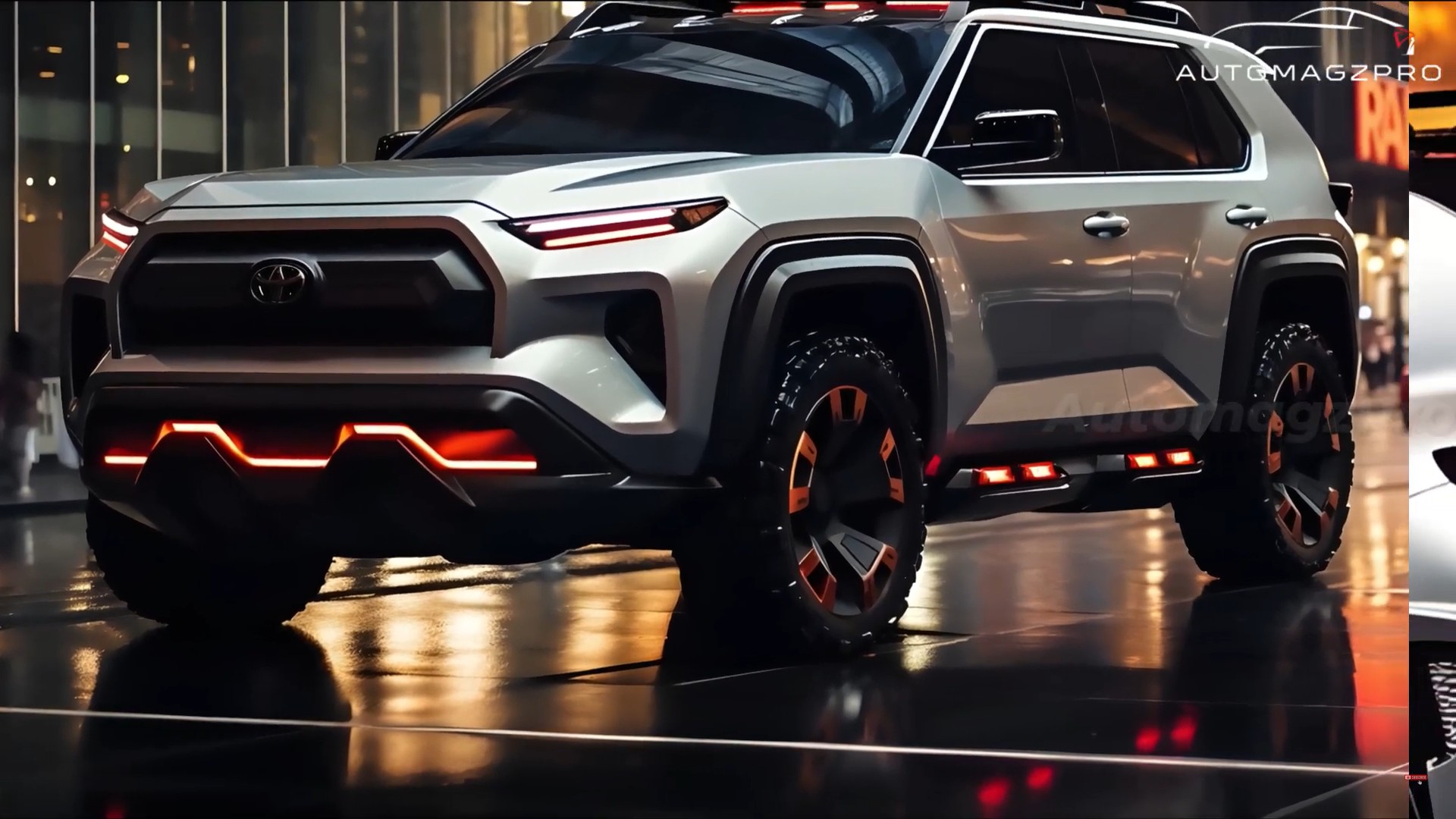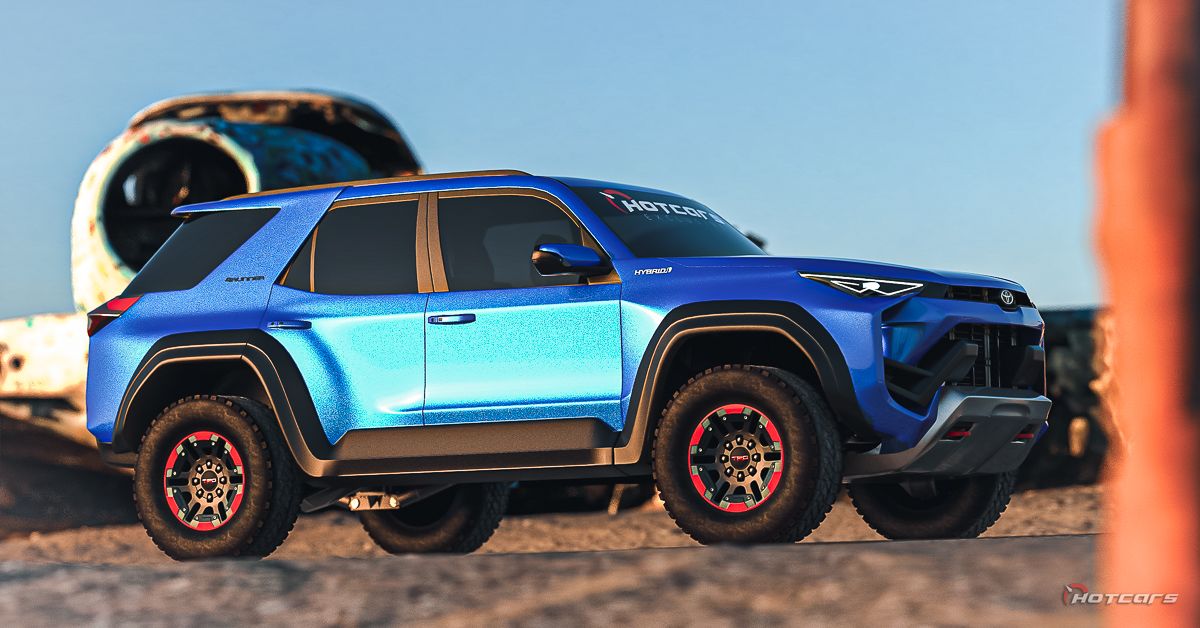The Electrified Frontier: A Look at the Potential 2025 Toyota 4Runner EV
Related Articles: The Electrified Frontier: A Look at the Potential 2025 Toyota 4Runner EV
Introduction
In this auspicious occasion, we are delighted to delve into the intriguing topic related to The Electrified Frontier: A Look at the Potential 2025 Toyota 4Runner EV. Let’s weave interesting information and offer fresh perspectives to the readers.
Table of Content
The Electrified Frontier: A Look at the Potential 2025 Toyota 4Runner EV

The Toyota 4Runner, a rugged and reliable SUV, has long been a favorite among off-road enthusiasts and families alike. However, as the automotive industry shifts towards electrification, speculation has arisen about the possibility of an electric 4Runner. While Toyota has not officially announced plans for an electric version of the 4Runner, the potential for such a vehicle is intriguing and warrants exploration.
The Case for Electrification:
The automotive landscape is rapidly changing, with electric vehicles (EVs) gaining significant traction. The benefits of EVs are numerous, including:
- Environmental Sustainability: EVs produce zero tailpipe emissions, contributing to cleaner air and mitigating climate change. This aligns with Toyota’s commitment to environmental responsibility.
- Enhanced Performance: Electric motors offer instant torque and smooth acceleration, providing a thrilling driving experience. This could be particularly beneficial for off-roading, where power delivery is crucial.
- Lower Operating Costs: EVs have lower maintenance costs due to fewer moving parts and rely on electricity, which is often cheaper than gasoline.
- Technological Advancement: The development of electric powertrains is rapidly advancing, leading to improved battery range, charging speeds, and overall efficiency.
Potential Design and Features:
A hypothetical 2025 4Runner EV could inherit the iconic design elements of its gasoline-powered counterpart while incorporating modern electric vehicle features:
- Rugged Exterior: The 4Runner’s signature boxy shape and high ground clearance could be retained, ensuring its off-road capabilities.
- Spacious Interior: The interior could feature a modern design with advanced technology, including a large touchscreen display, digital instrument cluster, and advanced driver-assistance systems.
- Electric Powertrain: The 4Runner EV would likely utilize a powerful electric motor, offering impressive torque and acceleration.
- Battery Range and Charging: A large battery pack would provide a substantial range, potentially exceeding 300 miles on a single charge. Fast charging capabilities would ensure convenient recharging.
- Off-Road Capabilities: The 4Runner EV could retain its off-road prowess with features like four-wheel drive, a low-range transfer case, and a robust suspension system.
Challenges and Considerations:
While the prospect of an electric 4Runner is exciting, certain challenges need to be addressed:
- Battery Weight: The weight of the battery pack could impact the 4Runner’s off-road performance and fuel efficiency.
- Charging Infrastructure: The availability of charging stations, particularly in remote areas, remains a concern for EV adoption.
- Price: Electric vehicles are generally more expensive than their gasoline counterparts, which could pose a barrier for some buyers.
- Consumer Perception: Some consumers may be hesitant to embrace an electric 4Runner, particularly those who value the traditional ruggedness and fuel efficiency of the gasoline model.
The Importance of an Electric 4Runner:
The introduction of an electric 4Runner could have significant implications for both Toyota and the automotive industry:
- Market Leadership: Toyota could solidify its position as a leader in the electric vehicle market by offering an electrified version of its popular SUV.
- Customer Appeal: An electric 4Runner could attract a new generation of environmentally conscious buyers while retaining its appeal to existing fans.
- Technological Innovation: The development of an electric 4Runner would drive technological advancements in electric powertrains and battery technology.
- Environmental Impact: The adoption of an electric 4Runner would contribute to a cleaner environment by reducing carbon emissions.
FAQs:
Q: When will the electric 4Runner be released?
A: Toyota has not announced any plans for an electric 4Runner, so its release date is currently unknown. However, given the growing demand for EVs, it is possible that a model could be introduced in the coming years.
Q: What will the electric 4Runner’s range be?
A: The range of an electric 4Runner would depend on the battery pack size and other factors. It is likely to exceed 300 miles on a single charge, based on current EV technology.
Q: How long will it take to charge the electric 4Runner?
A: The charging time will depend on the type of charger used. Fast charging stations can provide a significant charge in a relatively short time, while standard home charging will take longer.
Q: Will the electric 4Runner be as capable off-road as the gasoline model?
A: The electric 4Runner could retain its off-road prowess with features like four-wheel drive, a low-range transfer case, and a robust suspension system. However, the weight of the battery pack could impact its performance.
Q: Will the electric 4Runner be more expensive than the gasoline model?
A: Electric vehicles are generally more expensive than gasoline-powered vehicles due to the cost of the battery pack and other components. However, the price gap is narrowing as battery technology advances.
Tips:
- Stay Informed: Keep an eye on Toyota’s official announcements and news articles for updates on the potential electric 4Runner.
- Consider Your Needs: Assess your driving habits and whether an electric vehicle would be a suitable option for you.
- Explore Charging Options: Familiarize yourself with the availability of charging stations in your area.
- Research Electric Vehicles: Learn about the benefits and challenges of EVs before making a decision.
Conclusion:
While the future of the Toyota 4Runner remains uncertain, the potential for an electric version is a compelling prospect. The benefits of electrification, including environmental sustainability, enhanced performance, and lower operating costs, make it a logical evolution for the iconic SUV. The challenges of battery weight, charging infrastructure, and consumer perception need to be addressed, but the potential rewards of an electric 4Runner are significant. As the automotive industry continues to embrace electrification, the possibility of a 2025 4Runner EV is a testament to the ongoing innovation and progress in the world of electric vehicles.








Closure
Thus, we hope this article has provided valuable insights into The Electrified Frontier: A Look at the Potential 2025 Toyota 4Runner EV. We thank you for taking the time to read this article. See you in our next article!
